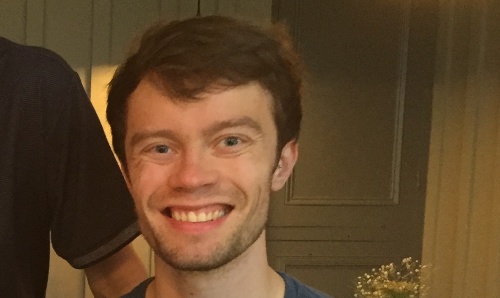Samuel James
Samuel studied MSc Environmental Monitoring, Modelling and Reconstruction and now works as a scientist for HR Wallingford, a not-for-profit research and consultancy organisation, specialising in complex water-related challenges.
On choosing Manchester

I chose to study at The University of Manchester for a few reasons.
I knew I wanted to attend a Russell Group University, with a strong international reputation.
In addition, I wanted to study elements of Geographic Information Systems (GIS) as well as Environmental Modelling practices.
Being in Manchester also allowed me to live at home and save on costs.
It was these three elements that persuaded me.
On choosing my career
I knew I wanted to work in a technical and environmental field, but what this specific sector or industry was I did not know.
Only when I got to The University of Manchester and became friends with my course-mates did the idea of working for an engineering consultancy appeal to me.
My course absolutely helped me decide on my career path, as well as my friends.
We were, and still are, a tight-knit group and bounced ideas off each other regarding job opportunities, supporting each other as needed.
On my career development since graduation
My career journey since graduating has been fantastic, a real rollercoaster, and I have developed professionally significantly since starting at HR Wallingford.
HR Wallingford was my first employer post-graduation and I am still working there now and enjoying it significantly.
I currently work as a scientist in the informatics team, specialising in the analysis and representation of information using a variety of different software tools and scientific methods.
I am learning every day and progressing through the ranks here.
As well as technical input on a wide variety of projects I am now also Project Manager for three projects and so have a good range of work.
On my typical day at work
My current role involves a wide range of responsibilities and this varies on a day-to-day basis so it is important to be organised.
On a typical day, I may join two to three meetings, before writing some code to develop software and then assess the finances of one of my projects.
I could also help support staff on particular technical problems that need looking at.
It is never quiet!
On how my course prepared me for my career
The skills I learnt at Manchester strongly helped me prepare for my career.
As well as the strong technical and academic outputs I received from the university, I gained further skills in communication and problem-solving.
In particular as a master’s student, you often end up talking to a wider range of individuals with different skills and subsequently developing those interpersonal relationships that are essential to your professional development.
I particularly enjoyed the GIS-focused course units whilst at Manchester including GIS for the Web by Dr Jonny Huck and Dr Sarah Lindley’s module on GIS.
Jonny’s course unit helped expose me to programming for the first time, especially within the domain of Geospatial analysis.
Sarah’s course unit helped me cement my interest in GIS further and develop the skills that I still apply in my current role.
On the Manchester experience
One of the things I enjoyed the most was the sense of community and camaraderie from my cohort and our strong relationships with our professors.
This environment was the perfect incubator to bounce ideas off for project assignments, get career advice or simply go for a social drink after lectures.
You end up with a lot of like-minded career focussed people and so you get pulled along with them in a positive way.
I would advise anyone thinking of starting this course to throw yourself into it as much as possible.
Remember your main priority is getting a degree and learning skills from this, but in addition don’t underestimate the advantages you have from simply being in a university environment, particularly somewhere like Manchester.
This might include career networking events, public lectures, scientific trials or social clubs.
It is the experience of university that shapes you into a career-ready professional, not the degree on its own.
